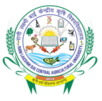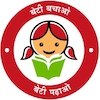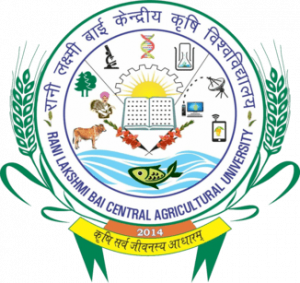Agronomy & Agrometeorology

Agronomy and agrometeorology are closely related disciplines that collectively enhance our understanding of crop production and environmental interactions. Agronomy focuses on the science of crop management and soil health, aiming to optimize agricultural productivity through techniques such as soil fertility management, crop rotation, and pest control. Agronomists work to develop and apply practices that increase crop yields while maintaining soil quality and sustainability. They investigate various factors that impact plant growth, including nutrient availability, soil structure, and crop genetics, to improve farming practices and address challenges in food production.
Agrometeorology, on the other hand, bridges the gap between meteorology and agriculture by studying how weather and climate affect crop growth and agricultural productivity. This field examines the impact of climatic factors such as temperature, precipitation, and humidity on crop development, pest and disease dynamics, and overall farm management. Agrometeorologists use weather data and climate models to provide forecasts and recommendations that help farmers make informed decisions about planting, irrigation, and harvest timings. By integrating meteorological insights with agronomic practices, agrometeorology helps optimize crop performance and adapt agricultural strategies to changing climate conditions, contributing to more resilient and sustainable agricultural systems.
Page recently updated on September 4th, 2024 at 10:12 am



 About RLBCAU Information About RLBCAU
About RLBCAU Information About RLBCAU History History of RLBCAU
History History of RLBCAU Vision & Mission
Vision & Mission Jhansi About the City of Jhansi
Jhansi About the City of Jhansi From VC’s Desk
From VC’s Desk  Objective Objective of RLBCAU
Objective Objective of RLBCAU How To Reach How To Reach RLBCAU
How To Reach How To Reach RLBCAU University Act RLBCAU University Act
University Act RLBCAU University Act Regulations Regulations in RLBCAU
Regulations Regulations in RLBCAU Practical Manual (UG) Practical Manual (UG)
Practical Manual (UG) Practical Manual (UG) List of Students List of Students in RLBCAU
List of Students List of Students in RLBCAU Board of Management
Board of Management  Admission ProcedureAdmission Procedure of RLBCAU
Admission ProcedureAdmission Procedure of RLBCAU Academic Programmes Academic Programmes in RLBCAU
Academic Programmes Academic Programmes in RLBCAU College of Agriculture About College of Agricultire in RLBCAU
College of Agriculture About College of Agricultire in RLBCAU College of Horticulture & Forestry About College of Horticulture and Forestry
College of Horticulture & Forestry About College of Horticulture and Forestry College of Fisheries About College of Fisheries in RLBCAU
College of Fisheries About College of Fisheries in RLBCAU Recent News Recent News from RLBCAU
Recent News Recent News from RLBCAU Notice & Circulars Notice & Circulars from RLBCAU
Notice & Circulars Notice & Circulars from RLBCAU Press & Media Press & Media from RLBCAU
Press & Media Press & Media from RLBCAU Tenders Tenders from RLBCAU
Tenders Tenders from RLBCAU Hostel Hostel in RLBCAU
Hostel Hostel in RLBCAU Guest House Guest House in RLBCAU
Guest House Guest House in RLBCAU Library Details of Library in RLBCAU
Library Details of Library in RLBCAU 2024 Photo Album View Photogallery for 2024
2024 Photo Album View Photogallery for 2024

